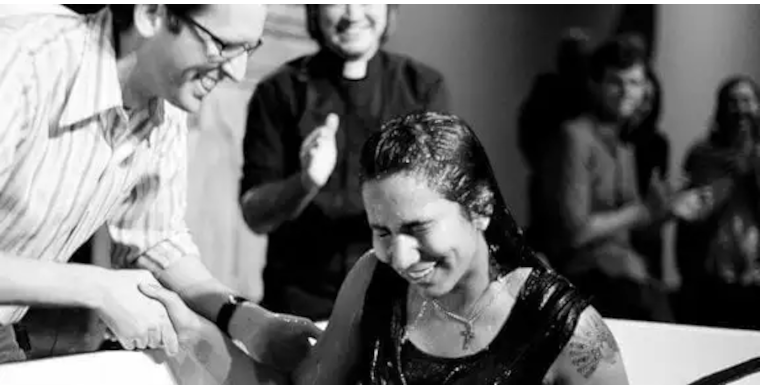My Anglican Journey -- by Sunita Theiss
By Sunita Theiss
Anglican Compass
February 222, 2022
The best way to describe my journey to Anglicanism is to say that I stumbled into it. But before I get to the Anglican part, I have to talk about my journey to becoming a Christian.
My Christian Journey
I grew up in an Indian Hindu family, and my first experience attending church was in high school. A friend invited me to her youth group, and looking back, I think I accepted the invitation because I was feeling particularly bitter about a disagreement with my parents. I wanted to provoke them by saying I was going to church.
I attended almost every week and had several emotional, formative experiences. But eventually, I stopped attending. It was causing conflict with my family, and quite frankly, I did not understand or realize how difficult it is to reorient a life around Christ, especially when it felt diametrically opposed to the way I had been living.
Years later, through what I can only describe as providence, I found the Bible I had been given years before. I remember sitting in my room, looking at it, and praying half-heartedly, "God, if You're real, now's a really good time."
My Anglican Journey
A month or so later, I contacted my friend and asked her if I could go to church with her. Another friend also suggested visiting the church I currently attend. At the time, Trinity was a Vineyard church in the process of changing denomination to Anglicanism. I was baptized that Easter and confirmed Anglican later that year.
When I began attending this church, I was brand new to my faith. I did not have a strong grasp on the differences between denominations, and frankly, I did not think it was that big of a deal. Some Christians baptized babies; some did not. Some baptized with a sprinkle while others dunked. I thought that pretty much covered it.
With the support of this new community and leadership and an unquenchable desire to draw closer to God, I quickly learned more about Christian faith and practice, church history, the differences among denominations, and about Anglicanism, in particular.
There is immense value in the history, theology, and practice of Anglicanism, including its "three streams" approach to worship. I believe wholeheartedly that this balance between the evangelical, liturgical, and charismatic refines us, matures us, humbles us, and ultimately helps us appreciate and respect one another, despite our differences and because of our diversity.
But still, I struggle. As before, I found difficulty in redirecting and reorienting my life around God, around my faith, and away from a lifestyle I had embraced for so long.
The Book of Common Prayer & The Daily Office
I was not sure how to pray, how to confess, or where to start with reading the Bible. A friend of mine, a priest, gave me a small copy of the Book of Common Prayer. There are still scraps of paper used as bookmarks throughout it. The BCP helps me pray when I lack original words or even the desire to pray. It gives me a guide for reading the Bible, and the intention and order of this plan become more apparent as time passes and continues to deepen my faith. There is Biblical truth and grace on every page.
I will add that I am not always the best at the "daily" part of the Daily Office, but when I am consistent with it, it has only had a positive impact on my day to habits and interactions. Starting and ending each day with prayer and contemplation are the perfect bookends our days need.
Liturgical Worship
The routine and ritual of liturgical worship have become sweetly familiar. Especially in "high church" liturgies, you worship with your whole body, with all of your senses engaged -- kneeling, crossing yourself, the smell of incense, exchanging the Peace, receiving the Eucharist.
As the BCP provides prayers when my faith is weak, the liturgy provides an order and rhythm when I find myself unable to engage.
We move through the seasons of the liturgical year together. As a community, we fast, and as a community, we feast. In doing that, we grow to see each other as objects of God's grace, as images of God.
The beautiful reality of the Anglican Church is that we are part of a large, historical, diverse, and global community that is engaging with a common faith, reading the same texts, praying the same prayers, and confessing alongside one another, despite differences in language, culture, and ethnicity.
In Anglicanism, through the Book of Common Prayer, the writings of the early Church, and the cadence of the liturgical year, I constantly and consistently find reassurance that difficulty in pursuing a life of faith is normal, and that life is a constant ebb and flow of feasting and fasting.
Sunita Theiss is an Atlanta native and graduate of Georgia State University. She works in digital marketing and attends Trinity Anglican with her husband. You can find her on Twitter at @atlsunita.














